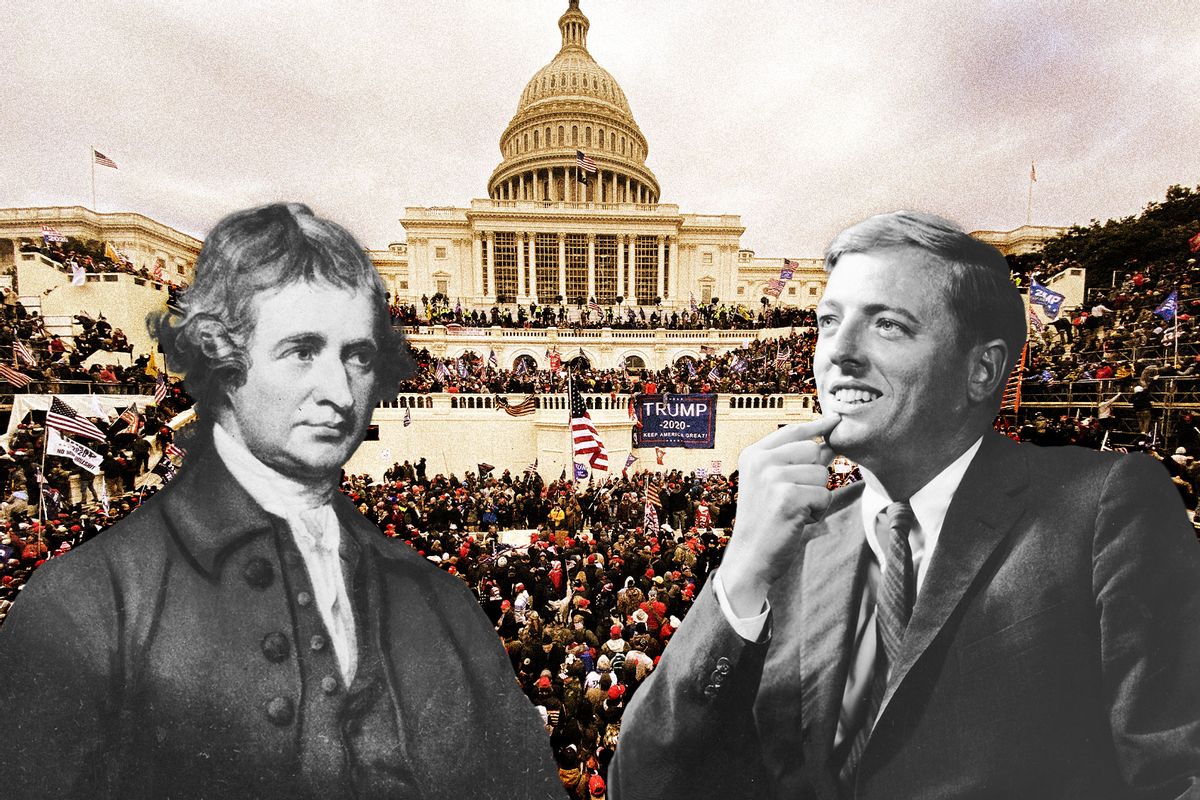skews13
Diamond Member
- Mar 18, 2017
- 9,433
- 11,856
- 2,265
In 1950, author and critic Lionel Trilling wrote:
This month, the New York Times reviewed "Regime Change: Toward a Postliberal Future," by Patrick J. Deneen, a lecturer at Notre Dame.
Before even attempting to evaluate the book in the context of present-day issues, we'd better be clear on what American conservatism is, where it came from, who the people are who purport to be conservative intellectuals, and what their game is.
In Europe and America, conservatism as we now know it grew out of the reaction to the French Revolution. The Anglo-Irish 18th-century statesman Edmund Burke is typically held up as the spokesman for the enduring conservative sensibility, and such prominent postwar American conservatives as William F. Buckley Jr., Russell Kirk and George Will have made much of Burke's purported moderation and good sense.

 www.salon.com
www.salon.com
In the United States at this time liberalism is not only the dominant but even the sole intellectual tradition. For it is the plain fact that nowadays there are no conservative or reactionary ideas in general circulation. This does not mean, of course, that there is no impulse to conservatism or to reaction. Such impulses are certainly very strong, perhaps even stronger than most of us know. But the conservative impulse and the reactionary impulse do not, with some isolated and some ecclesiastical exceptions, express themselves in ideas but only in action or in irritable mental gestures which seek to resemble ideas.
This month, the New York Times reviewed "Regime Change: Toward a Postliberal Future," by Patrick J. Deneen, a lecturer at Notre Dame.
Before even attempting to evaluate the book in the context of present-day issues, we'd better be clear on what American conservatism is, where it came from, who the people are who purport to be conservative intellectuals, and what their game is.
In Europe and America, conservatism as we now know it grew out of the reaction to the French Revolution. The Anglo-Irish 18th-century statesman Edmund Burke is typically held up as the spokesman for the enduring conservative sensibility, and such prominent postwar American conservatives as William F. Buckley Jr., Russell Kirk and George Will have made much of Burke's purported moderation and good sense.
- A desire for hierarchy and human inequality. This belief derives from the medieval religious notion of the Great Chain of Being, whereby there is a place for everybody and everybody must know his place. It justifies economic exploitation and denial of political rights. Conservative writers propagandize on its behalf with a straw-man argument: Any gain in equality costs society an equal or greater loss in freedom; egalitarianism is the mere soulless equality of the gulag, where we cannot own property and must share toothbrushes. This sentiment pops up consistently in the works of American conservative theorists, from Buckley's "Unless you have freedom to be unequal, there is no such thing as freedom," to David Brooks' hankering for rule by a wise elite. American-style laissez-faire economics and libertarianism are largely based on this idea.
- The only acceptable society is based on Christianity. Never mind the establishment clause of the First Amendment; conservatives will forever try to smuggle in more and more official endorsement of religion until the United States is effectively a theocracy. The rationale is that some sort of divine or transcendental dispensation is the sole basis for a just temporal order. Translated into the bumper-sticker mentality of American Christian fundamentalism, that means that if people don't believe in God, there's nothing to stop them from running amok and killing people. This thesis would have been news to medieval crusaders, the Holy Inquisition, Francisco Franco's Falangists or the Russian Archbishop Kyrill, who has blessed Putin's invasion of Ukraine and the resulting carnage.
- We must obey tradition. For some unexplained reason, our ancestors were infinitely wiser than us, and apparently they get a vote on present affairs. To paraphrase Edmund Burke, if we're going to have democracy, let's extend it to the dead. Scratch someone who fancies himself an educated conservative and you will often find a person who reveres the past; unfortunately they leave out details like slavery, witch burning and childbed fever. Many psychologists consider this mentality to be a cognitive bias in brain function, but whatever its source, the political utility of the attitude is obvious: Utopia only exists in an ever-receding past, progress is impossible, and future generations shall profess bygone superstitions. And tradition, in this case, means the folkways of a specific, favored culture, thus denying the universality of the human spirit. The idea is well expressed by Buckley's statement that conservatives must "stand athwart history yelling 'stop.'"

A short history of the conservative intellectual: They don't exist
From Burke to Buckley to Patrick Deneen, we've seen a 200-year history of defending the indefensible

